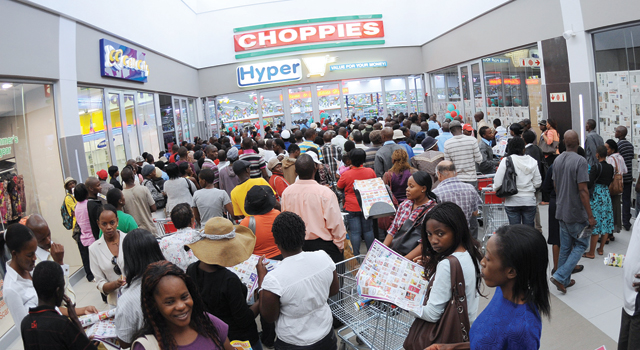The Competition Authority (CA) has reneged on its earlier decision to reject a joint application for exemption by Choppies, Payless and Woodstock to form Choppies Buying Group. Gazette Business can reveal that the CA backed down from a protracted legal battle with Payless and Woodstock, who had referred the matter to the Competition Commission. In a letter dated 19 December 2014, the CA proposed to settle the matter out of court, implored Payless and Woodstock to withdraw their referral to the Commission and gave the green light for formation of the buying group.
When rejecting the joint application last year, the CA said the buying group would likely result in price collusion, lessen competition and create financial dependency on Choppies. The CA also said the adverse effects of the buying group on competition were not proportionate to the benefits; and ordered Payless and Woodblock to have weaned themselves from Choppies by November 30th.
Payless and Woodstock immediately appealed to the Competition Commission, saying the CA failed to demonstrate any anti-competitive prejudice that would result from formation of the buying group. In the end, the two parties signed a consent order in which Payless and Woodstock withdrew their application and undertook to file a proper referral to the Commission. The CA also undertook to hold in abeyance the order for Payless and Woodstock to have weaned themselves off Choppies Buying Group by November 30th. However, the referral, filed in October, was short lived as attorneys representing CA, Bookbinder Business Law, On January 5th sent a letter to Payless and Woodstock proposing an out of court settlement. In the letter, the CA offered to settle the matter provided Payless and Woodstock withdrew their referral to the Competition Commission. The CA also proposed to postpone the deadline for Payless and Woodstock to have weaned themselves from Choppies from November 30th 2014 to November 30th 2017.
The latest developments have once again raised concerns that the CA was powerless to curb Choppies’ monopolistic ambitions. Pundits have also opined that Choppies will use its market dominance to charge lower prices created by its growing economies of scale and undermine competition. Generally, buying groups are cooperative arrangements in which retailers combine their purchases in input markets to strengthen their buying power over suppliers and obtain favorable prices. Buyer groups could pass the lower price benefit to consumers. However, in the absence of offsetting efficiency benefits, seller power by retailers could result in higher prices for consumers and perhaps reduced choice than would be the case where normal competitive conditions prevailed. Such a scenario could also lead to price fixing and exclusive dealing, effectively dismantling the free market.

